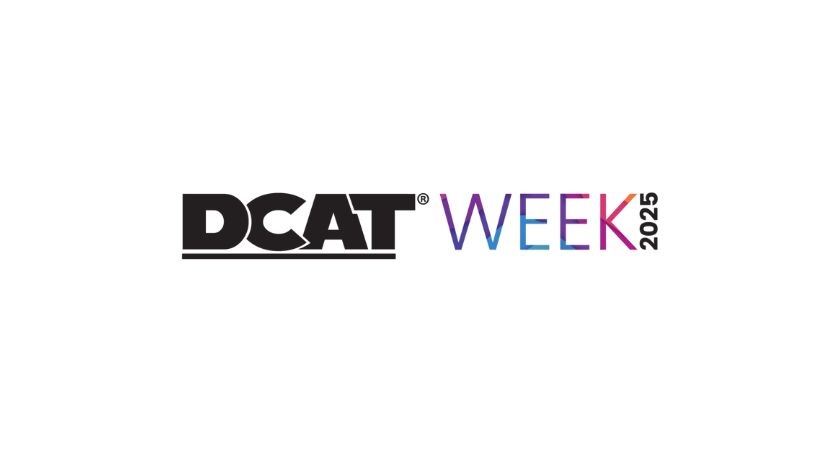DCAT Week
Highlights from the DCAT Member Company Announcement Forum
From Lonza to Thermo Fisher Scientific and more, here's what’s new around the industry.

DCAT Week kicked off on Monday, March 17th, with the DCAT Member Company Announcement forum, a much-anticipated program in which senior executives from DCAT Member Companies made major news announcements to attendees and the industry press.
Announcements included mergers & acquisitions, capital expansions for manufacturing and development capacity across the bio/pharmaceutical value chain, and other key corporate strategic developments.
Below is a summary of some of the significant announcements made during the forum:
Lonza
Stefan Egli, Business Unit Head, Mammalian, Lonza, shared an overview of Lonza’s strategy and new organizational structure.
The organizational structure for the CDMO business will evolve to a simplified set-up with three integrated business platforms. Integrated Biologics will advance Lonza’s best-in-class integrated offering and will comprise Mammalian and Drug Product Services. Advanced Synthesis will combine hybrid chemistry and biology solutions and will comprise the former Small Molecules division and Bioconjugates. Specialized Modalities will pioneer and scale cutting-edge technologies, including Cell & Gene Technologies, mRNA, Microbial, and Bioscience. Also, as part of the reorganization, Lonza has decided to exit the Capsules & Health Ingredients (CHI) business. This move is designed to enhance customer and shareholder value through an increased focus on the CDMO offering, which is Lonza’s core business.
In 2024, the company invested CHF 1.4 billion in expansion. Recent highlights include its acquisition of the Genentech large-scale biologics manufacturing site in Vacaville, California from Roche for USD 1.2 billion; investing in additional bioconjugation capabilities in Visp, Switzerland; and constructing a dedicated commercial-scale aseptic cGMP filling line at its Stein, Switzerland site.
Corden Pharma
Michael Quirmbach, Ph.D., CEO & President of Corden Pharma, highlighted the company’s commitment to spend ~€900m over the next 3 years to grow its Peptide technology platform. These transformational plans consist of two major expansion initiatives occurring in parallel in the US and Europe.
The US expansion involves bringing additional Peptide capacity to the Corden Pharma Colorado site with the planned construction of a new large-scale manufacturing facility, and an additional increase in manufacturing trains in the existing facility. This is the result of rapidly increasing demand in the Diabetes and Obesity Glucagon-like Peptide 1 (GLP-1) agonist medications market.
The European expansion centers on the construction of a new greenfield facility in the Basel region Switzerland, with the aim of creating additional Peptide capacity to serve customers from initial early clinical to late-stage commercial manufacturing.
In other news, Corden Pharma and Viking Therapeutics signed a multi-year strategic partnership earlier this month to support the commercial demand of Viking Therapeutics’ GLP-1 drug candidate VK2735.
Avantor
Ger Brophy, PhD, head of Avantor’s Scientific Advisory Board, presented highlights from the recently completed expansion at its flagship European manufacturing site.
The new production facility’s advanced technologies quadruple the site’s capacity for manufacturing, formulating, and filling United States Pharmacopoeia (USP) purified water and Water for Injection (WFI)-based hydration solutions. These high-purity solutions are essential in buffer preparations, cell culture media, clean-in-process (CIP), and formulation processes, supporting the stability, efficacy, and safety of biologics and other life-saving therapies.
Fujifilm Diosynth Biotechnologies
Lars Petersen, CEO & President of Fujifilm Diosynth Biotechnologies, highlighted the company’s multi-year, multi-site expansions aimed at enhancing supply chain agility. In recent years, the company has announced $8.6 billion in investments, and they’re not slowing down. They plan to put out a new facility every year for the next four years straight—a total investment of $9 billion.
Petersen emphasized the significance of the company’s “kojoX” philosophy, which is their approach to the design and build of a modular, agile bioproduction network.
The kojoX bioproduction ecosystem is being built for agility, scalability and efficiency across the company’s strategic locations in the US, UK, Denmark and Japan, allowing biopharma companies access to modular, scalable manufacturing capacity that meets demands from early clinical development to commercial launch.
The global network is built with a harmonized design of the production facilities equipment, processes, and quality systems. This harmonized design enables validated drug substance API processes to transfer to new, equivalent production lines within Fujifilm Diosynth Biotechnologies’ network – delivering scalability and faster technology transfers for customers and a more sustainable production process for the environment.
Thermo Fisher Scientific
According to Jennifer Cannon, President, Commercial Operations, Pharma Services, Thermo Fisher Scientific is strategically expanding its global capacity and capabilities across its drug development and manufacturing services in 2025, driven by evolving industry needs and macroeconomic factors.
A key focus is the significant investment in the U.S. manufacturing footprint, addressing customer concerns about supply chain security and reinforcing the company’s commitment to local access within a global network. To accelerate drug development, Thermo Fisher is enhancing its Accelerator Drug Development framework through substantial investments in digital enablement, workforce expansion, and cross-network integration, including a $1.5 million allocation for data integration and operational efficiencies.
On the drug substance front, the company is scaling biologics and emerging modalities with new bioreactors, expanded cell line offerings, advancements in mRNA technology, and enhanced rapid development frameworks. Drug product manufacturing is being bolstered by increased sterile and oral solid dose capabilities, with new fill-finish lines, pharmaceutical development services, and packaging lines established across multiple global sites. Clinical supply and trial services are being enhanced through expanded packaging capabilities, clinical trial site expansions, and strengthened cell and gene therapy services.
Finally, Thermo Fisher is strengthening its bioproduction and supply chain solutions through investments in cGMP chemical capabilities, raw material sourcing, and the planned acquisition of Solventum’s Purification & Filtration business, all aimed at ensuring reliable access to critical materials and enhancing global logistics.
Axplora Group
Axplora’s CEO, Martin Meeson, announced a €50 million investment in its Mourenx site in Southwest France, securing its position as a key player in the fight against cardiovascular and metabolic diseases. Specializing in large-scale API industrial chemistry and chromatography, this transformative project will enhance Mourenx’s capabilities. By upgrading Mourenx’s infrastructure and capabilities, Axplora will solidify its position in peptide purification in a biologics environment and support the development of next-generation therapies, including GLP-1 drugs that target diabetes and obesity.
Axplora is also strengthening its position in the commercial manufacturing of ADCs with the launch of a cutting-edge payload manufacturing workshop at its Le Mans site (France). The new facility reinforces Axplora’s commitment to delivering high-quality clinical and commercial-scale solutions for ADC development and manufacturing.
Additionally, in 2023, the company installed a new cGMP pilot unit in Leverkusen, Germany.
Bio X Cell
Bio X Cell, a provider of functional antibodies for translational research, is expanding its global distribution network with the opening of a new distribution center in Beijing, China.
According to Colin Kennedy, Business Development Manager, the new Beijing distribution center will significantly enhance service to researchers and institutions across China by increasing inventory availability and expediting order fulfillment. By establishing a stronger regional presence in Asia Pacific (APAC), Bio X Cell aims to better support its customers in one of the world’s most dynamic and rapidly growing biomedical research markets.
SK Pharmteco
Joyce Fitzharris Head of Small Molecule, Europe, SK Pharmteco, highlighted key expansions for small molecule API, peptide and plasmid production.
In 2022, SK Pharmteco budgeted $35 million for the initial phase of its expansion goals at the SK Biotek API manufacturing facility in Dublin. The first phase of the project at the Swords campus will include a new building that will house equipment capable of increasing reactor volume capacity by 26.5 cubic meters and will include filtration and drying equipment as well as space for subsequent phases of the expansion. The new facility will open for business in January 2026.
SK Pharmteco also announced a substantial expansion of its small molecule and peptide production capabilities. With a $260 million investment, the company is constructing a new facility in Sejong, South Korea. This new facility, scheduled to commence operations in late 2026, will mark the fifth plant SK Pharmteco has established in South Korea. It will serve as a pivotal component of the company’s global manufacturing network.
Additionally, SK Pharmteco recently commissioned a new, 20,000-square-foot CGMP testing facility, located on its King of Prussia campus, with dedicated laboratory space specifically designed for replication-competent lentivirus (RCL) testing and molecular based analytics. The full platform is available for R&D testing and full CGMP testing capabilities.
Bora Pharmaceuticals
J.D. Mowery, Division President, CDMO, highlighted Bora Pharmaceuticals’ plans to leverage artificial intelligence (AI) by integrating it into all aspects of its infrastructure in order to enhance drug development, manufacturing, and distribution.
The CDMO’s goal is to create the first “sentient CDMO network”—a system that doesn’t just react, but predicts, adapts, and evolves alongside people and partners.



